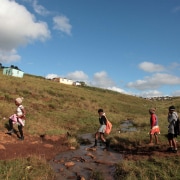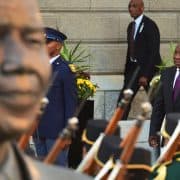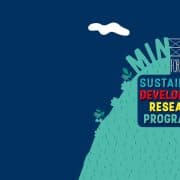|
Getting your Trinity Audio player ready...
|
In March we reported on the murder of environmental activist and community leader Sikhosiphi ‘Bazooka’ Rhadebe, who was shot dead in front of his young son. We were part of a group of NGOs who at the time demanded justice for the slain leader, and issued a letter two months later lamenting the lack of action in resolving the murder, which apparently related to plans by Australian mining company Mineral Commodities Limited (MRC), to mine titanium along the Eastern Cape’s Wild Coast.
Under Rhadebe’s leadership, the local activist group Amadiba Crisis Committee had been resisting the proposed mineral sands mining for years.
Now the Australian company involved is pulling out of the controversial mining project. In a statement issued in July 2016, MRC announced its withdrawal from the project, stating that ongoing violence and threats to the peace and harmony of the local Xolobeni community has prompted it to enter into an agreement with its BEE partner Keysha Investments for the sale of its share of the operations.
“The company accepts that the future viability of the Xolobeni Project should be managed by stakeholders and organisations exclusively owned by South African people,” the statement noted.
This is not a sign that the mining plans will be abandoned, nor is it in any way justice for Rhadebe, whose case is no closer to being solved, with no arrests made yet.
In fact, it is certain that the community would benefit from the mine, but there are as many who are vigorously opposed to it as there are those who support the idea. The environment, however, may not be as certain a beneficiary.
Xolobeni is regarded as one of the largest undeveloped mineral sands resources in the world, containing in excess of 9 000 000 tons of ilmenite, a titanium-bearing ore. With this bounty under their feet, the villagers in the area will be fighting off would-be mining concerns for the foreseeable future. Mining minster Mosebenzi Zwane has the power to prohibit mining in certain areas, but to date has not exercised that authority.
This is how Legalbrief reported the news of MRC’s divestment:
MRC pulls out of Xolobeni dune mining project
Four months after community leader Sikhosiphi ‘Bazooka’ Rhadebe was gunned down in front of his son, an Australian mining company says it is bailing out from its plan to mine one of the world’s biggest undeveloped mineral sand mining ventures, at Xolobeni on the Wild Coast.
A report in The Mercury notes that Mineral Resources Commodities (MRC), a Perth-based company headed by Mark Victor Caruso, announced this week that it had taken a decision to divest its majority interest in the controversial dune-mining venture because of ‘ongoing violence and threats to the peace and harmony of the Xolobeni community’ and hoped to sell its interests at Xolobeni to a local black economic empowerment group.
The decision to sell has raised several eyebrows in the local community around who will fund the takeover, as well as the identity of the new beneficiaries if mining goes ahead, according to the report. It notes the announcement also coincides with a high-level meeting today (20 July) at the Xolobeni Primary School between the local community and the deputy ministers of police, mining and water. It is understood the meeting has been requested by the Amadiba Crisis Committee to discuss continued violence and complaints against the police following the murder of Rhadebe. Rhadebe, a taxi owner, community leader and chairperson of the Amadiba Crisis Committee, was a vocal opponent of the dune-mining proposal, the report states.
Meanwhile, the national Department of Environmental Affairs has launched an investigation into another mine in which MRC has a stake over its controversial environmental practices. According to a Daily Maverick report, this is revealed in a letter by Environment Affairs Minister Edna Molewa, which refers to the West Coast mine where Tormin’s conduct ‘is allegedly causing significant impacts to the coastal environment and affecting the nearby community’.
And, in another blow to the mine, the Department of Mineral Affairs has rejected its application to extend its prospecting activities by more than 20km along the coastline, citing environmental transgressions. The company has appealed against the decision. The Australian-owned Tormin mine, close to the town of Vredendal, has repeatedly been accused of flouting labour and environmental laws, including expanding the mine without permission, mining in conservation areas, extracting garnet in breach of the environmental management plan, and causing a ‘catastrophic’ cliff collapse.
Tormin is owned by Australian-listed Mineral Sand Resources, whose South African subsidiary MRC has just withdrawn from proposed dune mining with the Xolobeni community on the Wild Coast. Western Cape MEC Anton Bredell has referred the allegations against Tormin to the environmental affairs department, which is taking them “very seriously”.
Molewa adds that the department “has already commenced an investigation into the matter, which will include engaging with the Department of Mineral Resources”.
• Image of the Wild Coast from Wikipedia.


 Bonile Bam/New Frame
Bonile Bam/New Frame 




